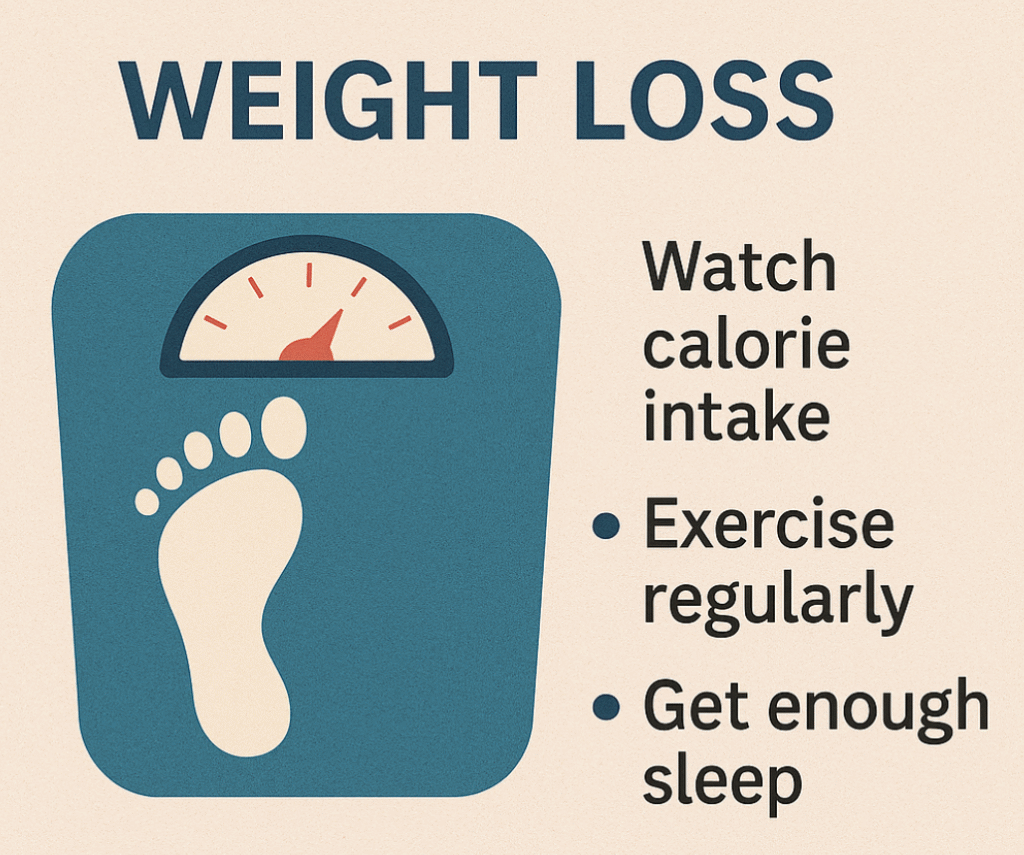Weight loss remains one of the most common health goals worldwide, not only for aesthetic reasons but also for its profound impact on overall health. Maintaining a healthy weight reduces the risk of heart disease, diabetes, high blood pressure, and even certain cancers. However, sustainable weight loss is not about quick fixes or fad diets—it’s about long-term lifestyle changes supported by science.
Understanding Weight Loss Basics
Weight loss occurs when the body burns more calories than it consumes. While this may sound simple, factors like genetics, hormones, sleep, and stress can complicate the process. Effective weight management requires a combination of diet, exercise, and behavioral adjustments.
Key Strategies for Healthy Weight Loss
- Balanced Nutrition
A calorie deficit is necessary for weight loss, but quality of food is equally important. Diets rich in lean proteins, whole grains, fruits, and vegetables not only support fat loss but also improve energy and prevent nutrient deficiencies. - Exercise Regularly
Exercise boosts metabolism and helps maintain lean muscle mass during weight loss. A combination of aerobic workouts (walking, cycling, swimming) and strength training yields the best results. Research published in the Journal of Obesity suggests that regular resistance training significantly improves body composition (source). - Sleep and Stress Management
Sleep deprivation disrupts hormones like leptin and ghrelin, which regulate hunger, leading to overeating. Chronic stress also increases cortisol, promoting fat storage around the abdomen. Prioritizing sleep and practicing stress reduction techniques can accelerate weight loss. - Hydration and Mindful Eating
Drinking water before meals helps control appetite, while mindful eating techniques (slower eating, focusing on hunger cues) prevent overeating.
Common Myths About Weight Loss
- Myth 1: Carbs are the enemy. Whole-food carbs like brown rice and oats are essential energy sources when eaten in moderation.
- Myth 2: Skipping meals speeds up weight loss. In reality, it can slow metabolism and lead to overeating later.
- Myth 3: Rapid weight loss is sustainable. Crash diets often result in muscle loss and quick regain of fat.
Long-Term Benefits of Weight Loss
- Reduced risk of cardiovascular disease
- Improved blood sugar control
- Better joint health and mobility
- Enhanced mood and self-confidence
- Lower risk of certain cancers
Weight management should be viewed as a lifelong journey rather than a temporary fix. The goal is not just to lose weight but to create a healthier, more resilient body and mind.
🇰🇷 Premium Korean Ginseng Online Shop







